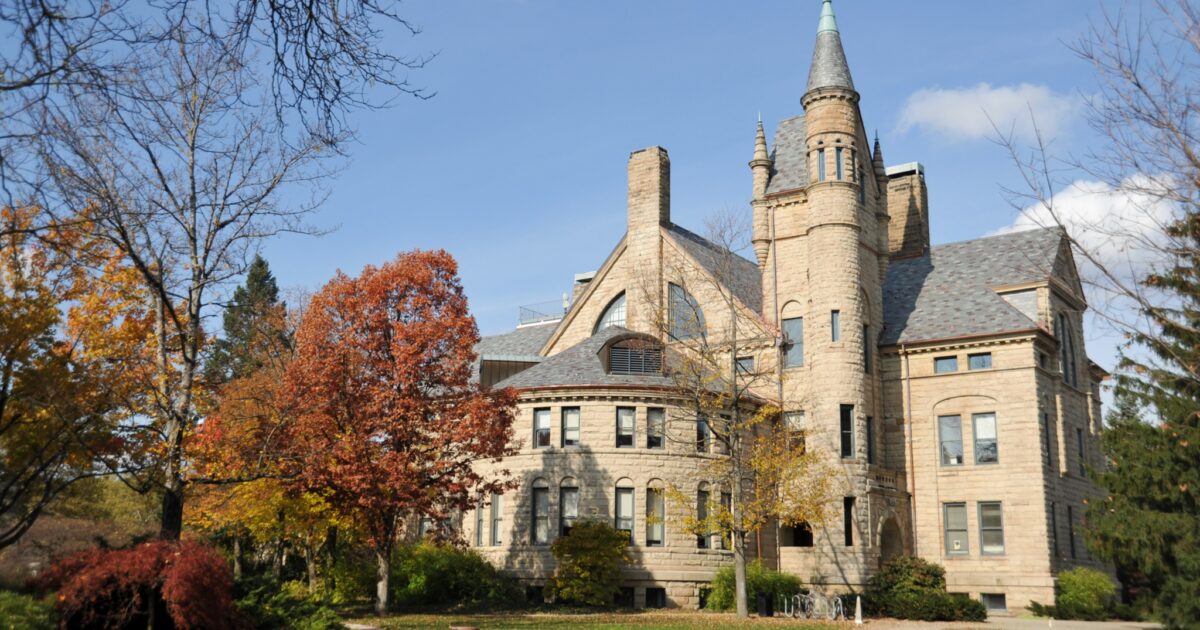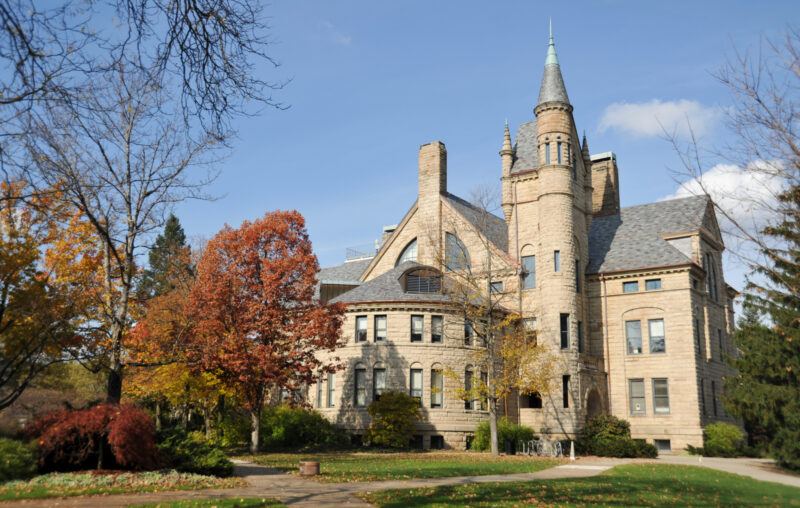The economics of higher education is fraught, to say the least. Tuition has been rising over the last 20 years at an astonishing rate. Most of this increase funds a now-bloated administrative class via student loans. And if President Biden gets his way, these student loans will be forgiven. The tragedy is that the average taxpayer, who might not have gone to college at all, and who pays her bills and loans in a timely manner, will be the one forced to pay the bill.
Much of the rest of the money sent off to American colleges and universities comes by way of federal research money for the sciences. Most public universities have thus become ancillary components of the federal government. This explains, in part, the complete takeover and increasing bureaucratization of the modern research university, public or private. It may also help explain the retreat from free speech into the land of wokeness, critical race theory, and intersectionality, as these all align with the progressive politics of the federal bureaucracy and of the donor class. At the moment, there is no financial incentive to reform higher education. Or is there?
Let us look at one case that involved no financial implications per se. This is the famous “water buffalo” incident that took place at the University of Pennsylvania in 1993. A freshman student was working on a paper and experiencing writer’s block. His concentration was further interrupted by noise outside his dormitory window by a group of young co-eds. He proceeded to shout out to them something to the effect of “shut up you water buffalo.” He had grown up in a Jewish and Yiddish household, and this is a rough translation of the Yiddish word behema, which is used to describe “a boor, an uncouth, unmannered individual,” which is to say it describes someone who is a jerk, behaving badly, acting stupidly. It has nothing to do with race. But because it was a case involving, as it turned out, a group of young black women, they took it as a racial epithet. This misunderstanding on the part of the supposedly aggrieved group of black women turned into an in-school trial of the offending party, one Eden Jacobowitz, who ended up leaving school because of the brouhaha. The university refused to back down in calling the incident racially motivated, and pursued its extra-legal pursuit of Mr. Jacobowitz, and only stopped when the group of women mysteriously withdrew their complaint.
Next up: Oberlin College vs. Gibson’s Bakery (2016). The facts are again pretty simple. A couple of Oberlin College students walked into the bakery and attempted to leave with some stolen baked goods. An employee called them on it and a scuffle ensued. It so happens that one of the students was black, and the college, in its wisdom, concluded that Gibson’s Bakery had committed a racially hostile act. The college then used its massive economic and administrative weight to promote a boycott of the bakery. Gibson’s had enjoyed a fine relationship with the college for over a century. But this turn of events threatened its very existence. As with the water buffalo incident, this event became national news. A full-scale trial ensued, and Gibson’s Bakery won a settlement of $44 million, which was reduced to $36.53 million. The college remains only vaguely repentant, and why not? The final sum amounts to just a rounding error relative to its endowment of almost a billion dollars.
The slap on the wrist and lack of remorse demonstrates that Oberlin, as an educational institution, seems largely insulated from the real world, and it will do little real soul searching regardless of the size of the judgment.
This brings us back to the University of Pennsylvania, which seems not to have any institutional memory. Why else would such a prestigious university engage in yet another bout of institutional idiocy? Maybe the component parts of the university have decided that times have changed, and that the new zeitgeist will now be in their favor. They might be right, but I hope not.
So what’s going on this time? Professor Amy Wax has come up against the progressive junta of the University of Pennsylvania, specifically its law school, where she has been on the faculty for over twenty years. Ms. Wax attended Yale and Oxford as an undergraduate, was trained as a neurologist (Harvard, PhD) and then took her law degree, starting at Harvard and finishing at Columbia. She is currently the Robert Mundheim Professor of Law at the Penn law school where she has also won numerous teaching awards.
The law school currently has her under review with the hope, it would appear, of taking away her tenure and then her job. Why is this occurring? Dr. Wax is doing what lawyers are taught to do: ask simple but hard questions, relying on facts that result in hard truths and more difficult questions. Dr. Wax has had the audacity to ask if bourgeois culture, which includes hard work, studiousness, delayed gratification, work, marriage, and having children in, rather than out of wedlock might be a good thing. She has questioned if it is problematic that most black students in the Penn law school are at the bottom of their classes. She has had the nerve to suggest that some cultures might be superior to others. For asking these impertinent questions, the dean of the law school has her under review.
Apparently, the principle of freedom of expression at Penn is good for me but not for thee. Wax has apparently crossed a “line,” transgressed “appropriate expression,” is a “racist” and a “white supremacist,” and she has yet to receive a “comprehensive and complete statement of all the charges lodged against her.” One can only describe the situation as Kafkaesque. The victim is guilty by definition, and crimes need not be first defined and then proven. That Wax is Jewish is perhaps not central to her case, but with the new anti-Semitism being rife on campus and among its administrative class, this certainly has a whiff and odor of the Dreyfus matter in 19th century France. Dr. Wax is currently experiencing a battle with cancer, so the situation is seriously testing her physical and mental mettle. Penn’s endowment is a paltry $18 billion. Should this come to a monetary settlement, it would appear Penn, like Oberlin, has the funds to handle it. But Professor Wax is tough and is fighting tooth and nail, even in her present condition, which, by the way, the university is barely acknowledging.
In the real world, economics dictates not just matters of supply and demand, or how to handle scarcity, but also the balance between ideological and monetary policies. This is now also the case in the world of higher education. We can expect to see more of this as lawsuits proliferate in the remorseless, woke, and unrepentant world of the American university.




